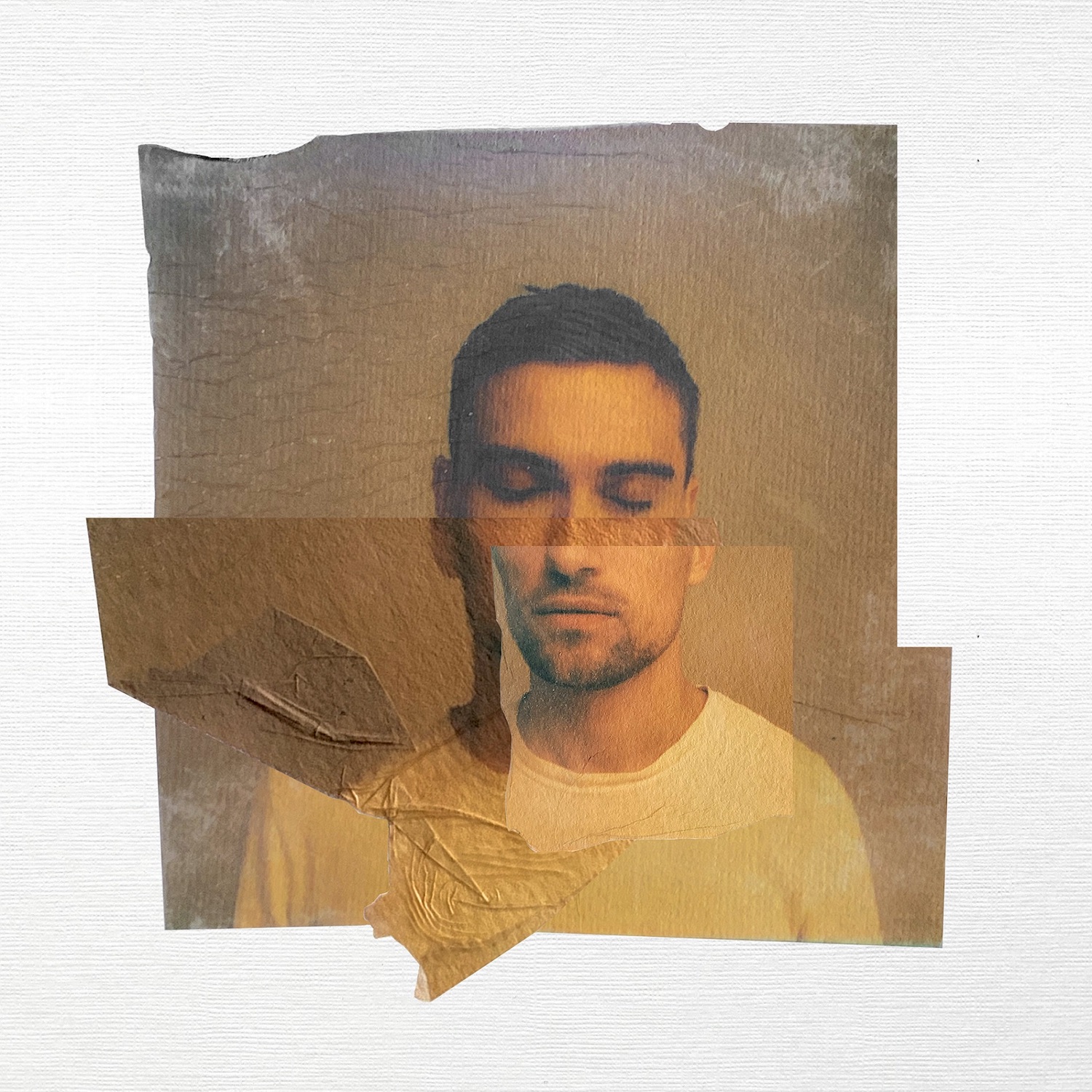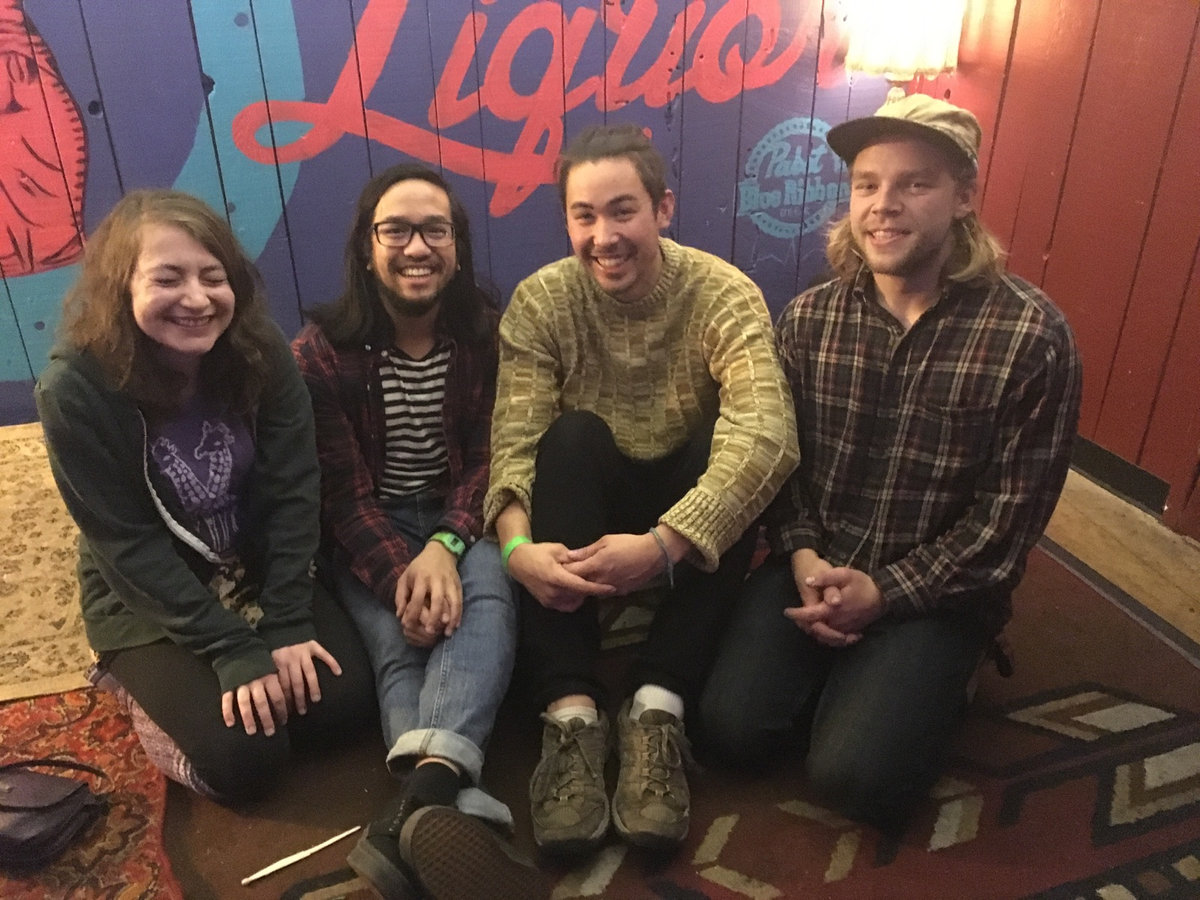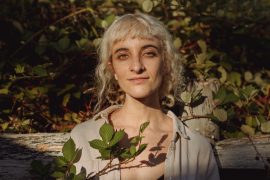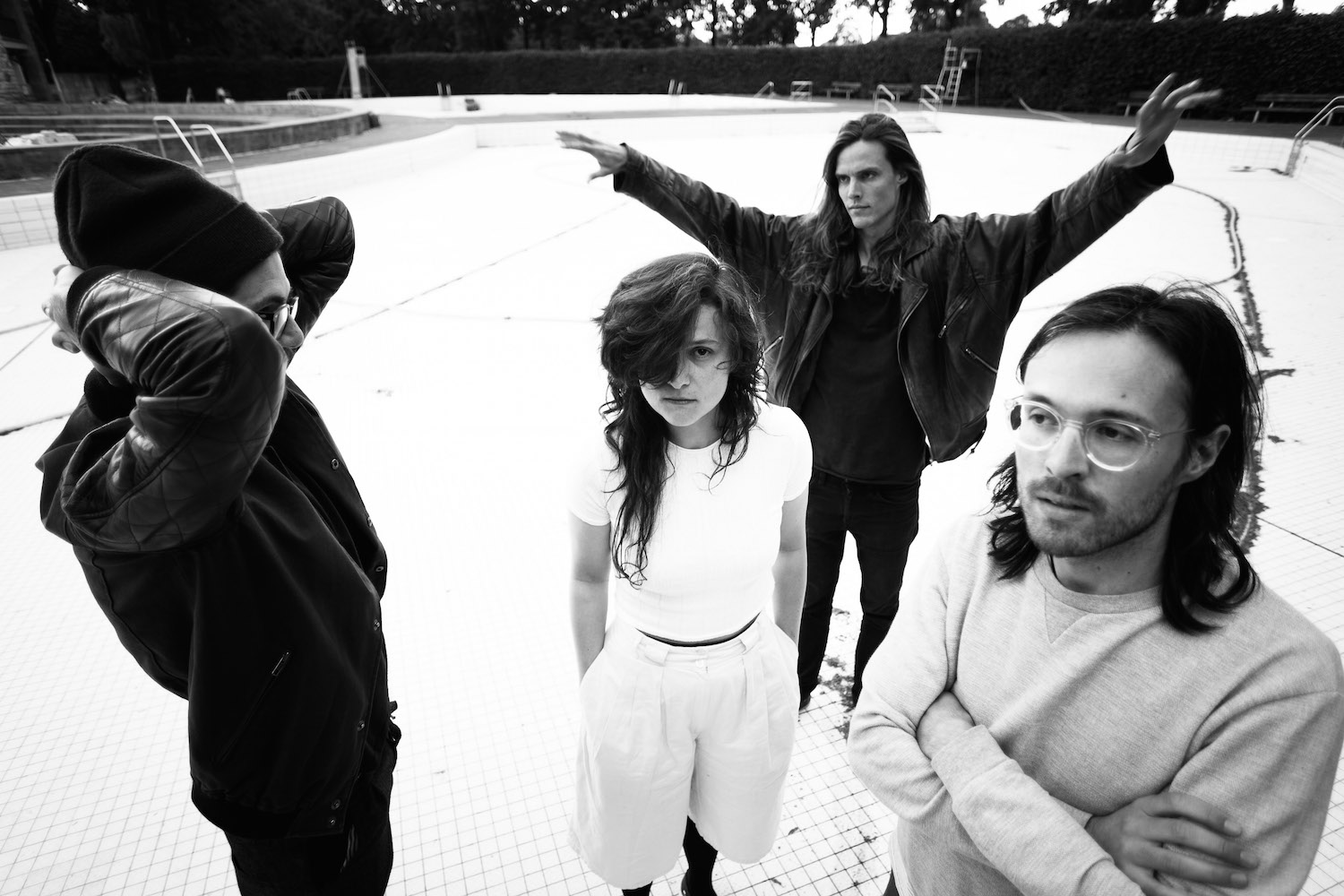Singer/songwriter Gregory Alan Isakov discusses his intimate and expansive sixth album ‘Appaloosa Bones,’ a transportive, softly soul-stirring record of connection, place, and the human spirit.
Stream: ‘Appaloosa Bones’ – Gregory Alan Isakov
You have this plan, but at the end of the day, the song is going to tell you what it wants to be.
From seeds to songs, Gregory Alan Isakov is a farmer – both on the land, and in the studio.
The Johannesburg-born, Colorado-based singer/songwriter has dedicated his life to growing, nurturing, and cultivating; and while the members of his CSA and local restaurants get to reap what he (literally) sows, the rest of the world enjoys his other crop: A steady stream of folk songs and albums.
The latest of these fruits released this past August: Written and recorded during the height of the COVID-19 pandemic, Isakov’s sixth studio album Appaloosa Bones is a record full of beautiful, poetic reflections and intimate observations on life in motion and life on pause; of fleeting moments forever frozen in time. Eleven tender, raw ballads about human connection and the strength of the human spirit are realized through recordings that feel soft, yet heavy.
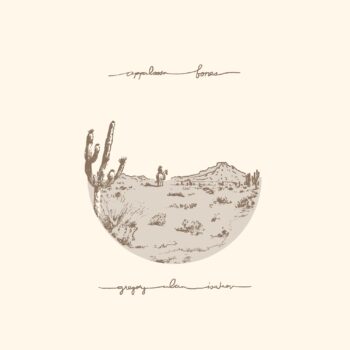
Arriving five long years after 2018’s Grammy-nominated album Evening Machines, Appaloosa Bones has a certain weight to it, as well as a quiet warmth. Isakov captures some of that isolation and yearning that we all went through, together yet separately; at the same time, he evokes the vastness, the grandeur, and the wonder of the West Texas desert, where so many of these songs were born. His music is expansive and intimate, all at the same time – a quality that has permeated his recordings ever since he emerged in the mid-2000s.
Your crooked heart has left you to roam
Looking for love, you forget to come home
I’ll wait for you, darlin, like grain in the ground
I’ll feed your horses, oh, I’ll feed your horses
I’ll feed your horses when you go into town
– “Feed Your Horses,” Gregory Alan Isakov
Interestingly enough, he had initially intended to record a lo-fi rock n’ roll album. Yet just as seeds have their own DNA, his songs – which often times dictate their own path, slowly revealing their true nature along the way – had other plans.
“And so I started writing these really quiet songs,” Isakov recalls. “There’s a town called Terlingua, near Big Bend National Park, and I just worked on a song down there… They were like, these no hooks, super slow B-side songs.”
“None of the ones that I thought were gonna make it made it at all… you have this plan, but at the end of the day, the song is going to tell you what it wants to be. The record is going to tell you what it wants to be, and you just have to hold on to the reins and finish and not be too attached.”
Annabelle, I’ll be gambling ’til
my bones are ‘neath the apple field
Silver rain makes green every once in a while
I been lost, lost, at every crossing, I was just drifting cold
Couldn’t tell ya how many times I was ready to fold
Finally found us some good luck, let’s see if it lasts
Cold, cold, every shoulder, still I learned to lean and freeze
Your roaring smile campfire lit up the trees
Aw, my gal, she’s a silver bell, she pulls straight from the loam
Just a kiss from your lips and I’m ready to go
Finally found us some good luck, let’s see if it lasts
Swing high, swing low, come to carry
We’re here on the ground
But I swear it’s heaven
– “Silver Bell,” Gregory Alan Isakov
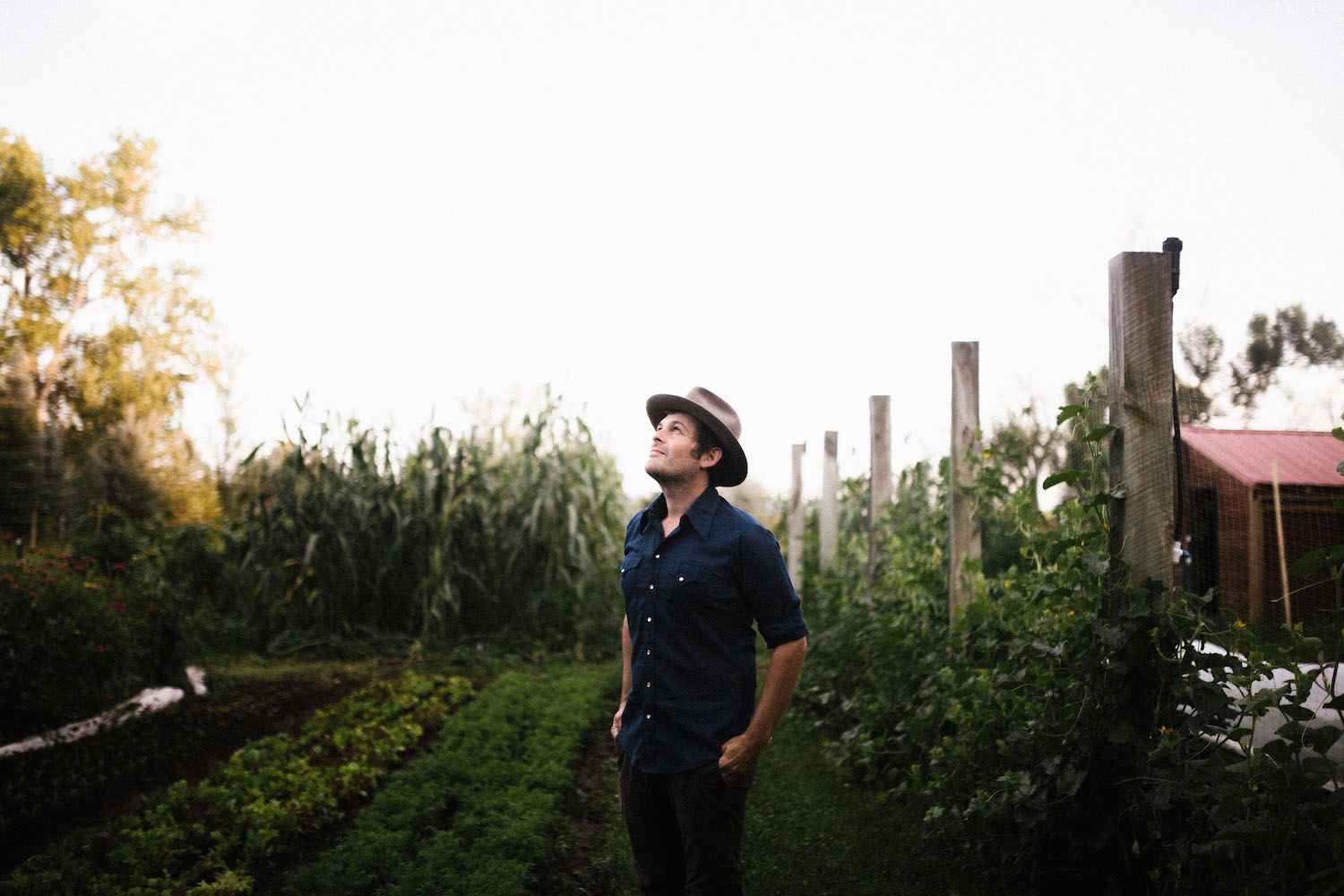
Far more gentle indie folk than distorted lo-fi rock, Appaloosa Bones sees Gregory Alan Isakov doing what he’s long done best – creating a soundtrack to life’s little meaningful moments and oft-forgotten in-betweens. It’s an album of inner strength and perseverance, passion and resolve, emerging from some of humanity’s darkest days and glowing with an inspiring, comforting light.
Isakov’s expressive voice is a resounding beacon of visceral and vulnerable emotion, accompanied by a suite of instruments that transform his moving performance into a soul-stirring experience. Glistening guitars, gorgeous harmonies, percussion, and the occasional, tasteful orchestral strings arrangement serve to heighten the highs and accentuate the lows, ensuring every song becomes a potent, fully realized vessel of cathartic feeling. It’s a breathtaking marriage of the cinematic and the intimate, all carried out with a quiet warmth that soothes the heart, mind, and soul.
Our love was untested, never rested
Slipping through our city fingers
Always dressed up, but never picked up
Watch every headlight cruising past our door
Oh oh oh, who’s gonna pick us up?
Oh oh oh, the night is starting to ache
Oh oh oh, who’s holding the reins?
And that sonar satellite that sings to us in Universe
We’re just hard stone but so easily broken
Like crumbling ruins off the coast of Spain
Oh oh oh, I’ll keep watch tonight
Oh oh oh, when the coyote come
Oh oh oh, I’ll be your watchman
Oh oh oh, while they’re just flashes
– “Watchman,” Gregory Alan Isakov
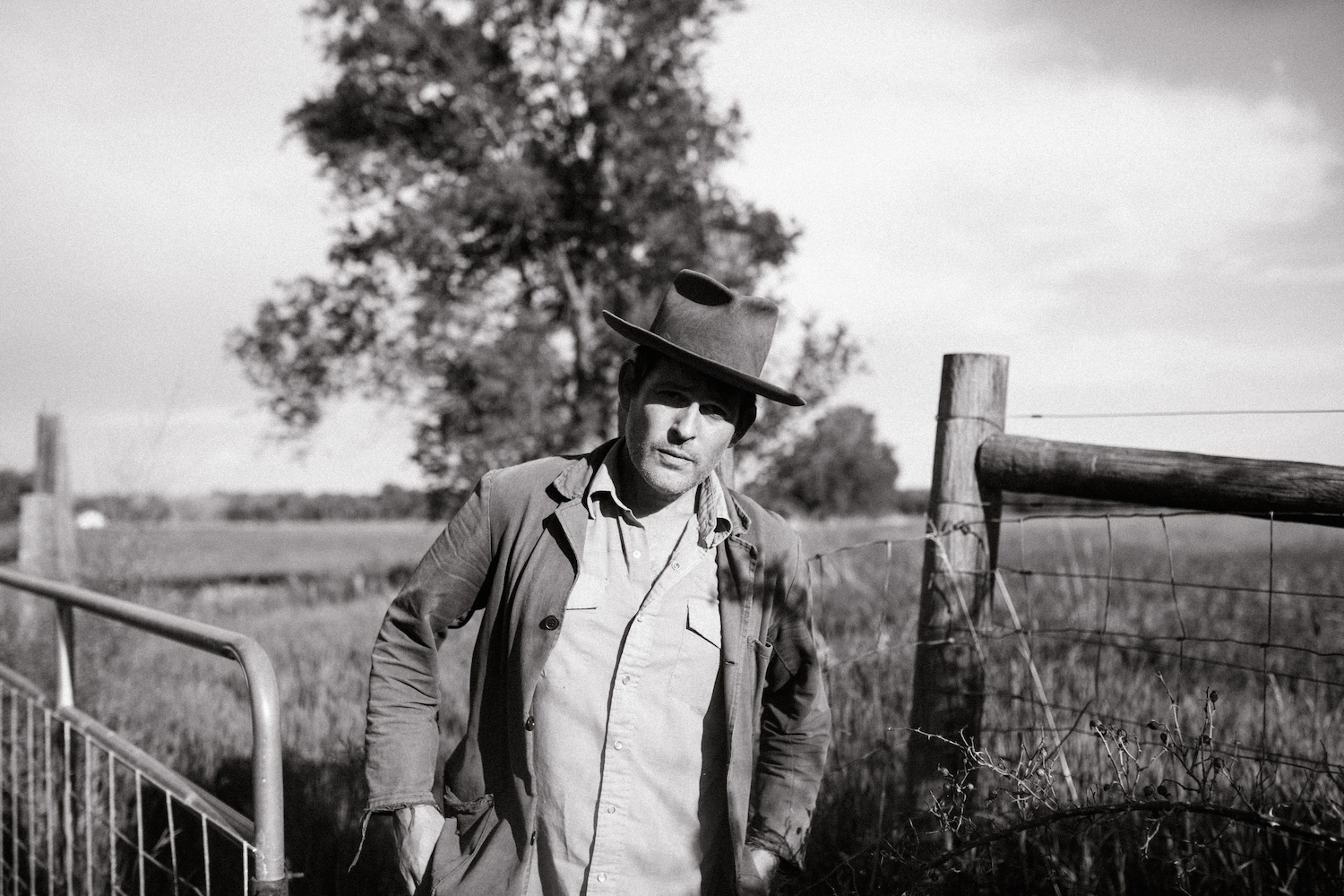
In concert, Appaloosa Bones’ songs prove especially enchanting as Isakov and his extraordinarily talented touring band – comprised of Steve Varney (banjo / guitar / piano), Jeb Bows (violin), Max Barcelow (drums), John Paul Grigsby (electric / double bass), and Danny Black (guitar / keys / lap steel) – take their audience on a truly immersive, all-consuming sonic journey. Every moment of the live show is carefully crafted to be transcendent and transportive; from the songs, which themselves are elevated and enhanced by the full band’s presence, to the musical transitions and interludes in-between, the six-piece ensemble create a hypnotic, expansive, and all-consuming world that, for nearly two full hours, takes all those present to another plane.
Atwood Magazine caught up with Gregory Alan Isakov to discuss farming, songwriting, and the roots of Appaloosa Bones.
“I hope it just takes people to a good place, and becomes theirs in some way,” the singer/songwriter says. “That it inspires people to make things. I think that’s what the best art does for me. It just inspires me to make stuff. I hope that that’s what this record does.”
Appaloosa Bones is out now via Dualtone Records and Isakov’s independent label, Suitcase Town Music.
— —
:: stream/purchase Appaloosa Bones here ::
:: connect with Gregory Alan Isakov here ::
Watch: “Watchman” – Gregory Alan Isakov
A CONVERSATION WITH GREGORY ALAN ISAKOV
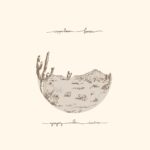
Atwood Magazine: Gregory, it’s great to reconnect. We actually spoke a few years ago around the release of Evening Machines, and I was hoping to start there. What's your relationship like with the album now?
Gregory Alan Isakov: That’s a great question. We’re still playing a lot. I mean, I’m playing songs from songs I wrote 20 years ago as well in our show. And they always seem to have like a new life to them or they keep coming back to me in certain ways. Songwriting is so bizarre, and making records too, because it’s not this evolutionary thing. You’re always kind of starting from zero – always. It’s so different than other kinds of work because you don’t necessarily get better [laughs] – you always start with this blank page, and then you’re on the ride and just devoted. It’s this co-creative process, but you don’t know if anything from the past is gonna make it in or inform you of what’s good.
Do you see any through lines between what you're able to do out in the field with seeds turning into plants, turning into food, going back into the ground, starting that process over, and what you do with your music – or are they separate?
Gregory Alan Isakov: Yeah, they’re very connected. I mean, I’m doing both all the time, every day. And I’m constantly juggling those worlds. But I mean, for me, honestly, being a grower is what I’ve been doing forever; it’s so refreshing because I know lettuce seed germinates to 78 degrees and in two days, and it’s gonna come out of the germ chamber exactly the way I put it in. And then we’re gonna plant it four weeks later in the field, and then five weeks later we’re gonna crop out. And so it’s just beautifully scientific. And with songwriting, I’ll be in the studio for a year and I don’t know if I have shit.
You're saying songs don’t germinate at 76 degrees?!
Gregory Alan Isakov: [laughs] I could be in there for months and not know if I actually have anything that’s gonna make anyone feel anything, or if anything is finished. And so I realized early on, I definitely need both in my life.

What is the litmus for making someone else feel something, versus making you feel something?
Gregory Alan Isakov: I guess that’s my only compass right now for if something is works – the way that I go about it is I have to step away. I’ll work really, really hard on an arrangement, or a piece of music, and I’ll be excited about it, and I’ll finish it and I’ll walk away for as long as possible and I’ll come back and just make sure, okay, this takes me to another place and I’m not getting pulled out of it.
Like when you’re watching a movie and you’re like, oh wait, there’s a cameraman right there. There are the moments that I’m noticing the cameraman – and then I just have to trust that initial feeling, because later, I’m gonna change the oil on it eight times and I’m gonna remix it and retract stuff and I’m gonna hate it. But I have to kind of trust that in the beginning, there’s this spark and I have to follow – I have to trust that I had that feeling, and follow through.
Do the songs still have that same resonance after listening to them 500 times of meticulous tweaking?
Gregory Alan Isakov: It’s funny, my girlfriend calls me a perfectionist, but I’m not at all! I always just say that I love mistakes. I love weird noises and recordings or whatever. It just has to be right to me, and whatever that means. And it’s not that word perfectionism, it’s more that it’s either right or it isn’t, and it’s just a bizarre compass to follow. It’s very much non-scientific.
You previously told me that, for you, making records is extremely laborious. Does that continue to hold true?
Gregory Alan Isakov: Oh, yeah. And, that’s what we’re just talking about is probably the most laborious part. The tracking, the writing, that stuff’s fun and sometimes can go pretty fast. But you really have to carve out, I don’t remember who I heard it from, somebody was talking about songwriting and how daydreaming is such an important part of this process, and you have to actually carve time out to do it. It’s like you’re punching into a daydream factory, and you have to sit there by a window for a while. And that is so true for me because there is this world that you’re writing from, and you have to spend time there. And it sounds like, oh, you’re just doing nothing or whatever. It is hard work to make sure you have time every day to spend time in that world.
The world that I imagine so much of your music comes from is one of midnight reflections – the time between dusk and dawn. I'd love to hear from you the world that spawned the Appaloosa Bones, and understand better where this record came from.
Gregory Alan Isakov: Yeah. My friend Johann Wagner, who I write a lot of songs with, he runs a poetry retreat in the desert, like about eight hours from Austin, towards Mexico. And I became one of the cooks there!
Well, he didn’t trust me to cook, but I was the dishwasher and in the kitchen, [laughs] and we would just spend a week in the deserts cutting up old books and… He’s one of my good friends that just loves words like I do, and we have this passion for words, and the landscape really does make it into my writing a lot. And almost this landscape being is really alive in the world that I write from. And so, a lot of this record came from West Texas and a lot of places like that.
I spend a lot of time there and they were all kind of written within the same period of time. And so to me, I think the record has a very landscape, desert experience, but also, it goes in and out of that whole space as well. For me it’s like this macro, micro… This big, big deal wide view of the world and our human experience, and then also being in a real location, like in a sense of place.
I recorded maybe 35 songs on this record and a bunch of them I was really excited about. They just didn’t fit. I have this big section in my studio, it’s just like the parts yard. I’ll just throw all the songs that don’t make it on the walls and they’ll be used later… It had to have a sense of place for me.
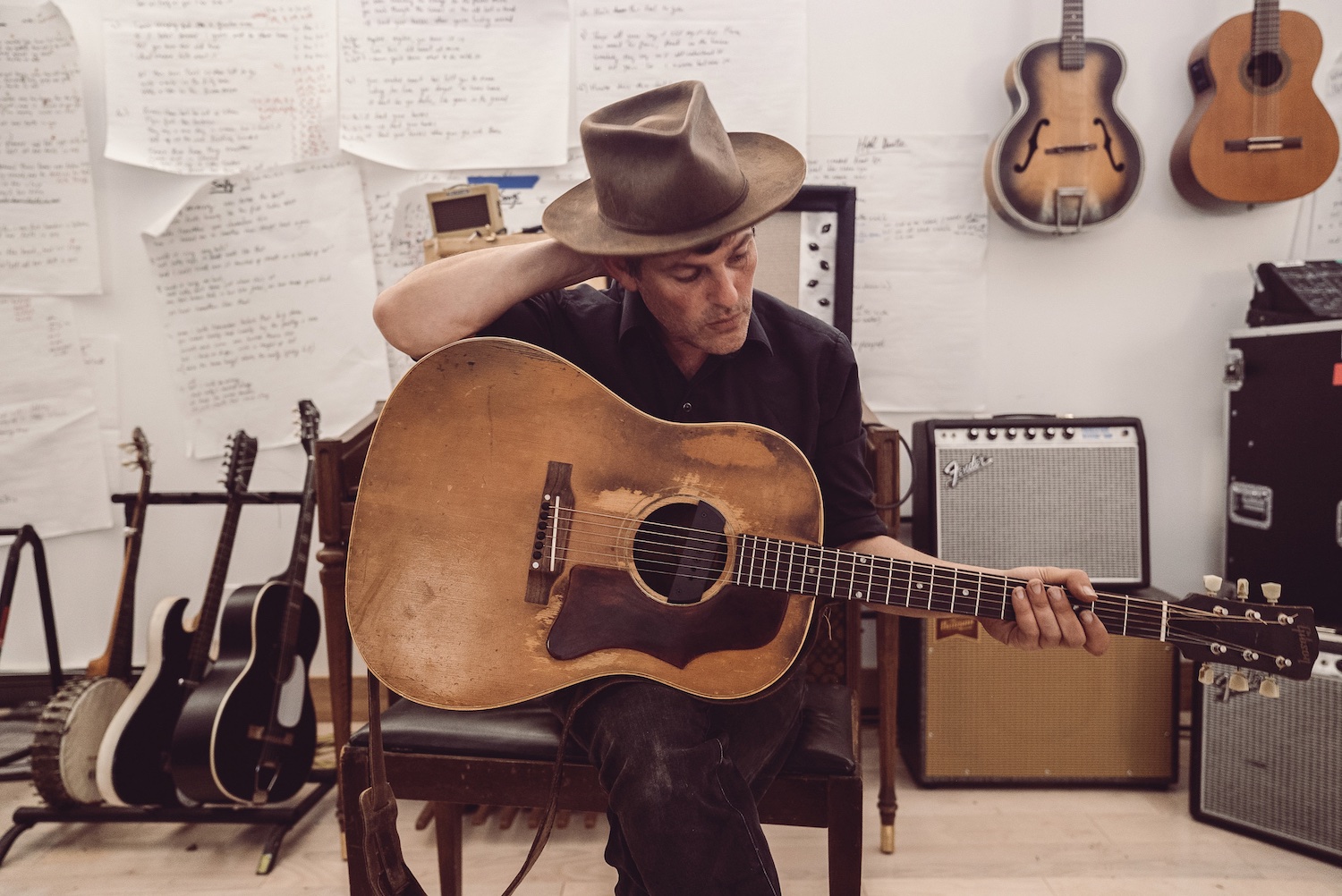
That's really interesting to hear that there was a physicality, that was different between your last record and this one. I suppose it makes sense that new places spawn different sounds, ideas, feelings. If I remember correctly, Evening Machines was intrinsically connected to your home studio on the farm. Does this album similarly hold true, in terms of the music that came back from Texas was then brought to life at home?
Gregory Alan Isakov: Yeah, I mean, it’s funny. I wrote a lot of this record over three seasons of in and out of tour, and then of course the pandemic and then Andrew Berlin, my engineer would come to the studio twice a week during the growing season and then a little bit more in the winter. And we would just camp out in there and just track all these songs. And then I would go back to work… I work with two other people running our farm, and then I’d work pretty much every other day of the week. I would just go in there Thursdays and Fridays and sometimes three days in a row. And so it gave me a nice chance to just get away and then come back.
I just wanted to make like kind of a dirty rock n’ roll record; that was a pretty big tangent. And to me, they’re all so different. All the records I’ve made are so different to me, and then my friends would be like, I don’t know, buddy. It sounds like you! [laughs] To them it sounds like another Gregory song. But to me I felt a major tangent to what I was doing before.
Where do you hear that rock n’ roll influence shining through the most? Where for you does that really raise its hand?
Gregory Alan Isakov: Well, it’s funny. I mean, I had all these lo-fi rock n’ roll kind of distorted old Silvertone guitar songs, and then they ended up not working for the record. And so I started writing these really quiet songs. There’s a town called Terlingua near Big Bend National Park, and I just worked on a song down there and I started tracking that and they were like, these no hooks, super slow B-side songs. And I was like, all right – I joke around with my friend Leif Vollebekk, ’cause we love B-sides. Like, we’ll leave B-sides on forever! We’re not interested in the A-side. And every time we each put out a record, it’s like, “I made the B-side for you,” and I was like, “My whole record is a B-side!”
So, it's inspired by rock n’ roll, but it's like the B-sides of the rock n’ roll A-sides.
Gregory Alan Isakov: Yeah, exactly. Like none of the ones that I thought were gonna make it made it at all. And so that’s why it’s a bizarre co-creative living experience because to me it’s like, yeah, you have this plan, but at the end of the day, the song is going to tell you what it wants to be. The record is going to tell you what it wants to be, and you just have to hold on to the reins and finish and not be too attached.
What you ended up with, at least I would argue, is something that's much softer and more gentle. I was trying to write down some keywords in terms of the things that I felt. One thing that came out to me, take “Appaloosa Bones,” for example, I feel like that song was freeing, but heavy at the same time. There's this profound weight to it, but the lyrics, evenings fall and flicker through the glass… It's coming from a dark place, but also talking about redemption or salvation. What are some of these heavy feelings coming from?
Gregory Alan Isakov: I think grief is so universal, such a human [experience]. Everyone spends all their time avoiding it… We go crazy out of our ways to avoid feeling those kinds of feelings, but when I really just kind of let go and relaxed into it, I found it to be really beautiful. Over the pandemic, I was visiting my little brother in Philadelphia and the whole city was empty, no one was out. I would stare through the windows and everyone was just watching TV. So that’s where those kinds of lines came from; everyone’s just experiencing the world through their TVs, and their little boxes and all are in the city. And like all of a sudden there’s like animals here that weren’t here before, and there’s like no traffic. I just found that kind of isolation, that emptiness, and a lot of grief, so beautiful and so unique. And so I think that’s where that song came from, mostly.
You open this record with “The Fall,” which you also released earlier this spring as your introduction. I understand that one is a bit of an outlier on the record, in terms of its story, but musically, I think it's a phenomenal segue into the world of Appaloosa Bones. What inspired you to put that at the top of this record? How much thought did you put into structuring these 40 minutes?
Gregory Alan Isakov: A ton. A ton of thought. That one honestly didn’t fit anywhere else. “Before the Sun” was originally gonna be the first track forever. I mean, that was decided early on, that banjo tune. And it just felt like whenever I hit, whenever I started with that song, it felt right to me. And “The Fall” wasn’t gonna make it on the record at all. It was another one of those songs I was really proud of, but it just didn’t quite fit with everything.
Or so I thought. And then the more I listened to it, I realized that it was very important for the story and just the musically, but also the sentiment about failure, about the beauty of failure. That I felt so resonant with, as part of our experience and how it’s another one of those feelings that we just spend forever trying to not experience, we’d work really hard to not experience. And so I tried it, I playlisted it everywhere else, and that was the only place it worked. So I kind of liked it because it was in the same key as “Before the Sun” and it sort of had a sort of segue, which we do a lot of shows because I don’t like to talk very much.
And so we spent a lot of time writing these interludes between songs because I don’t want to talk too much, but also I don’t want to break the experience for the listener. Someone went to work, and now they’re taking a train – like in New York City, going to Irving Plaza. It’s a shit ton of work, finding a babysitter and then getting dinner and finding tickets. It’s a huge pain in the ass. I have so much respect for that process of getting to see live music. So I spend a lot of time making sure that the songs have interludes, and whether there’s music between the songs or whether there’s silence there. That’s very intentional; we think about that stuff a lot.
What did you want to create in terms of the overall listening journey?
Gregory Alan Isakov: I think I don’t know what I wanted to create. But I think the way that the songs fell together in the story… the experience of going from one imagery to the next imagery is always interesting to me. And it’s something super heavy. Sometimes it’s the right move to stay heavy, but sometimes you have to lighten it up. A lot of these songs that wanted to be on this record were like, I was joking around with Leif Vollebekk, like just B-side-y, slow, landscaping songs. A lot of the songs too came from years ago, just songs I just had in my pocket forever. And I never thought they’d be on a record – like “Feed Your Horses” is 15 years old or something.
I’m trying to think of anything else that was super old… I think “Mistakes” was an old song that I kind of dug up. “Before the Sun” I wrote when I first got my first like banjo, when I was 21. And so I think that there were so many like little keys I was listening to, or little flags that would come up for me because a lot of the record I recorded by myself, Leif actually played all the piano on it, except for “Before the Sun” my little brother was staying with me, he played that. But I recorded most of the instruments on the record. Leif stayed with me for a few months and my friend Danny and John played bass on a few things.
And so I wanted to make something that kind of reminded me of starting out and playing songs in the first place. When I first met my band, our rent gig was this place called Appaloosa Grill. And it was in Denver, and we’d play there twice a month. It was the way we all paid rent. I had a landscaping job too, but we started really becoming a band from that bar gig – we played so many times. And so I thought that was interesting, how that made it into a song, or that lyric from that bar made it into a song. And it wasn’t intentional; I was just noticing, I guess.
I loved what you described as landscapes of songs. I gravitate toward that kind of cinematic music as well. Do any of these songs, really resonate with you – and which songs do you hope folks gravitate toward?
Gregory Alan Isakov: It’s funny. My girlfriend was just asking me like, what’s your favorite song that you’re putting out here? They’re all a little imperfect and perfect to me. And so I’m the wrong person to ask. And it’s funny ’cause I was talking to Andrew, my engineer, about how we’ll never “hear” this record. It is such an act of service making a record, because you’re actually never gonna enjoy it. We can’t hear it.
Even when you’re asking about Evening Machines, I haven’t heard that record since we made it. I don’t think, I think I did once when we were like remastering for vinyl, and I had to make sure the vinyl was cool. And I was like, oh, yeah, like, I would see what I was going for there. And I didn’t quite nail it, but I see it and I loved it. But, or like in a specific moment of a song or whatever. And it’s funny, like, I don’t know if I have a favorite. I don’t think that is. No, I don’t have a favorite.
Not to get too philosophical, but where do you think this record falls for you, in your discography and your story?
Gregory Alan Isakov: That’s a great question too. It’s funny, every record I make… We were about to put our first single out a few months ago, and I was just like, I always have this experience, I have to remind myself that this is a familiar thing, but you become paralyzed with self-doubt and you’re like, oh shit, people are gonna hear this now, it’s not just in my room and on the tape machine and I just hear it when I’m working on it or whatever, and you have to just surrender to it.
I never know what people are going to connect to; I’m always surprised at what songs get on those Spotify playlists, or what song people call out at a show or something. And that’s the coolest part about making music, because it is such a personal experience and I never have judgment the way anyone hears anything. Once I put it out, it’s not mine anymore at all and it belongs to whomever – everybody that it means something to – and that’s the way I experience records of my friends that put out records, and now they’re mine, and they’re part of my life. And so, yeah, I love that part of it and so I think that’s my favorite part.
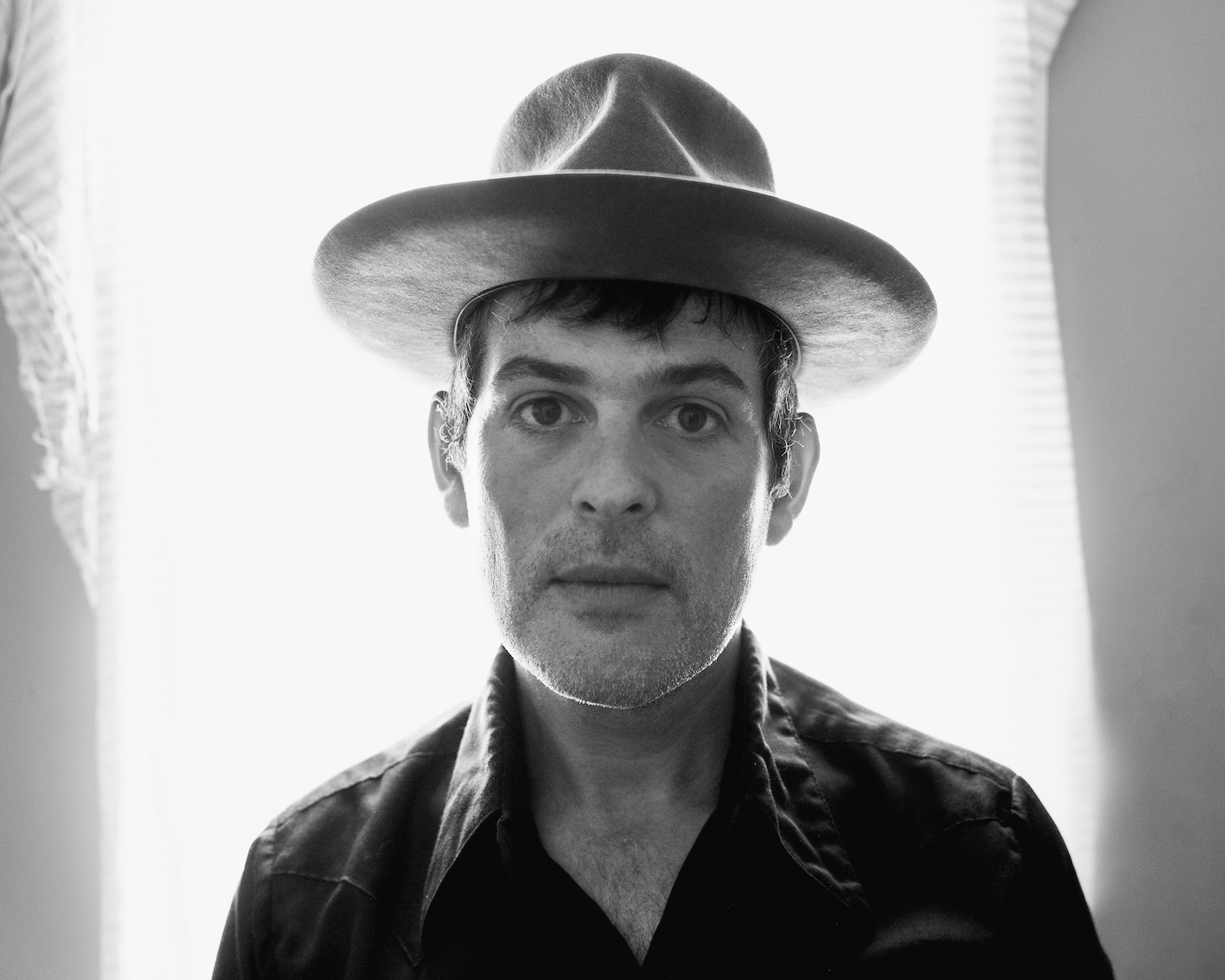
Who are some of your favorite artists that you really enjoy listening to – and is that the music you listen to when you're also creating, or do you have a sort of sound/musical deprivation when you're making your own songs?
Gregory Alan Isakov: I listen to a ton of instrumental music, actually. Mostly, we have like this, me and the farm crew have this washing station playlist which is hilarious it’s like all this Japanese music. And I love my friend Jeremiah’s record Piano Piano, I love that record, but also a lot of other instrumental. I think maybe ’cause I’m always just like got words in my brain all the time and like little images in my brain. Sometimes listening to lyrics if I’m working on something isn’t helpful.
But I love Townes Van Zandt – I listen to probably too much of him and Leonard Cohen, and then my friend’s records Jeremiah’s record, Leif’s records that come out. My friend Joe Purdy, I was, been listening to him a bunch. I’ve been kind of learning or discovering almost for the first time Paul Simon again and just playing a lot of his old records and I’m just like, holy crap, and I just got into this Beatles kick for a minute and like, I didn’t grow up with the Beatles. I grew up not around a ton of music. So I didn’t have the early kid Beatles thing where I knew every record and all that. But I’m just like blew away, yeah, but I was like, I get it like, holy crap. Paul McCartney, it just blows my mind. Some of his songs, writing and just like, yeah, I’m really into the Beatles right now.
I want to ask a little bit about the final songs: You leave us with “Feed Your Horses,” which feels like a bit of an upswing, a turn toward the light. To me that song really resonated with a nurturing light. You’ve talked about being inspired by your experiences during the height of the pandemic and seeing what life had become and knowing what it could be… Is “Feed Your Horses” the way out, in your mind?
Gregory Alan Isakov: I went out to Seattle to record Brandi Carlile on my record, This Empty Northern Hemisphere. And I just brought one mic with me and my G4 laptop. And I had recorded the whole record just really bare bones and I just wanted to, she offered to sing on it and so I flew out to her place and she had a bunch of horses. And she had all these interviews and stuff going on. She was like really blowing up at the time, people were calling her and I was like, holy crap, you’re talking to Ray LaMontagne right now, or whoever just call her all the time. She had all these fancy interviews all the time. [chuckle]
And so she had to go into town, all day I think she had a Rolling Stone thing and something else. And she’s like, “Are you cool here for the day? Like, can you feed my animals? Can I… ” And she had all these old guitars like in her barn and I was like, “Sure.” And so I just kind of… I was just walking around her property. And I was like, “Oh, that’s like… ” I don’t know how that song came, but it came really fast. Just like a country song about like the ultimate unrequited love, about just… I’ll make sure these are okay. You go and do your thing.
And it wasn’t literally about her or anything, but I thought it was cool that how it came, how it started. There’s a song by Leonard Cohen called “One of Us Cannot Be Wrong”, and I think that’s probably my favorite love song ever, even unrequited love song. And I think “Feed Your Horses” has that, but it’s sort of a happy song. It’s sort of a light version of that to me, which I… And I never kind of took it seriously ’cause I was like, “I can’t play a country song. It’s like a total straight waltz and a repeating chorus.” Like, that just didn’t feel right. And then it finally did, I guess. [laughs]
Do love songs come naturally? Is there a difficulty in that compared to other tracks?
Gregory Alan Isakov: [laughs] It’s funny. I was playing with this guy, John Trudell years ago in Taos, New Mexico, and he’s a native… I forget what tribe he comes from, but there was a lot of people from his community at the show in New Mexico. I opened, and all these people came up to me and they were saying that there’s so much hope in your song, and I was like, “Oh, I haven’t heard that before.” Normally it’s like, “Oh, those are the saddest songs ever.” And I loved that! I remember talking to someone and he said, “White people, they write songs about love ’cause that’s what they need. And we sing songs about rain ’cause that’s what we need.” And I was like, “Oh yeah, that makes sense.”
So what you do really is just surround yourself with artists who make even sadder music than you do and have them open for you on tour. So then when you come on, people will be like, “Wow, this is a burst of fresh air.”
Gregory Alan Isakov: Yeah, exactly. That’s perfect!
What do you hope listeners take away from Appaloosa Bones, and what have you taken away from creating it?
Gregory Alan Isakov: I hope it just takes people to a good place, and becomes theirs in some way. And that it inspires people to make things. I think that’s what the best art does for me: It just inspires me to make stuff. I hope that that’s what this record does.
As a farmer, do you have any favorites crops that you like?
Gregory Alan Isakov: That’s funny. People ask me that a lot. We grow hundreds of varieties here, and I’m constantly trialing new things, but I’ve always loved growing potatoes. I think there’s this magical, like when you dig them up. And we grow like 600 feet, rows of them, like really, really long. And which is too long for other crops to be out there for that long, but the potatoes, they’re magic. It’s insane to me. Every time.
Is it the possibilities of the potato, or is it the way it grows, how quickly it grows?
Gregory Alan Isakov: Yeah, the way it grows and you watch for the flowers. And once they start to fade, you’re ready to dig ’em up. And then you start digging ’em up and it’s just… And it leaves amazing soil behind. So we always throw them on new fields that we just started. And all of a sudden there’s all this life, this biodiversity and this microbiology going on after we crop out and it’s great. I think that’s my favorite.
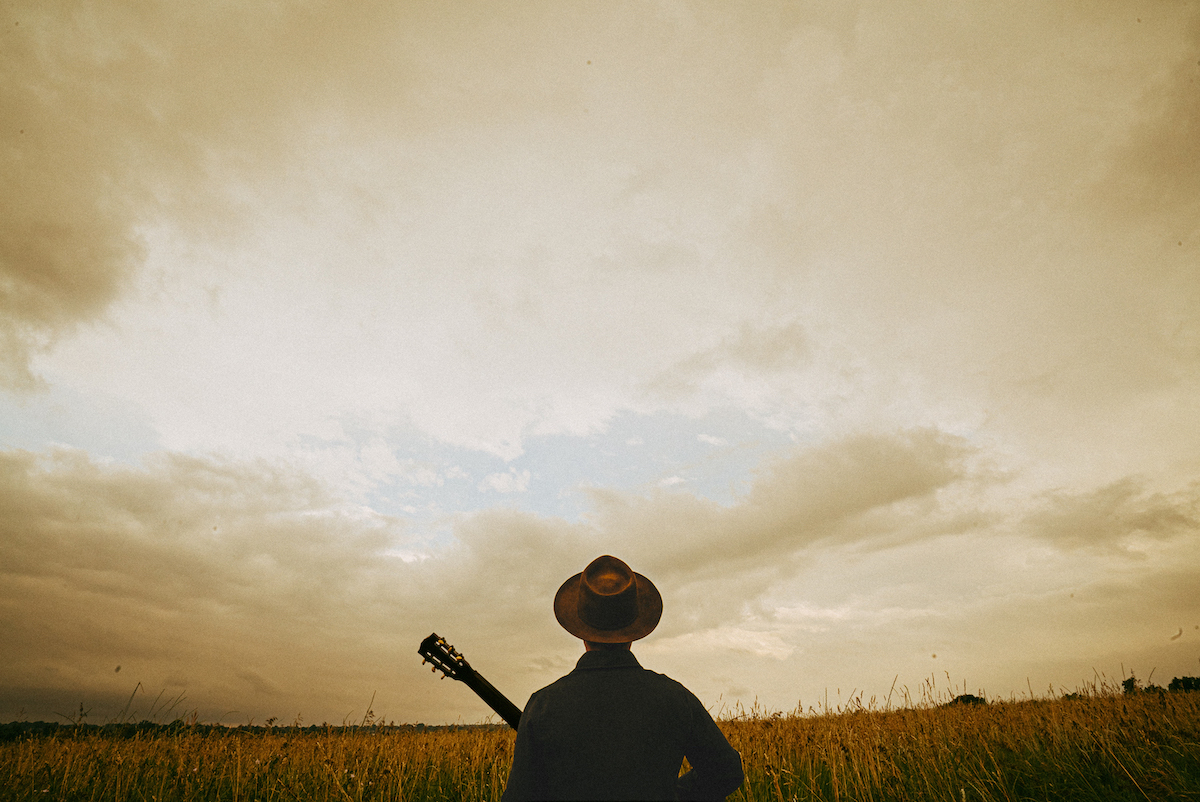
In the interest of paying it forward, are there any artists that you would recommend to our readers?
Gregory Alan Isakov: Oh my God, so many. Well, I got Leif Vollebekk and Jeremiah Fraites, I would say. And I love Sierra Farrell’s album, it was amazing. There’s so many great records right now that are coming. The Milk Carton Kids’ new record is insanely good. Aoife O’Donovan, she sings a few times on my record and it’s amazing. There’s so much music happening right now. We’re in a very fertile time… It’s a good time to be alive right now. There’s good records coming out.
— —
:: stream/purchase Appaloosa Bones here ::
:: connect with Gregory Alan Isakov here ::
— — — —

Connect to Gregory Alan Isakov on
Facebook, Twitter, Instagram
Discover new music on Atwood Magazine
© Glen Ross
:: Stream Gregory Alan Isakov ::

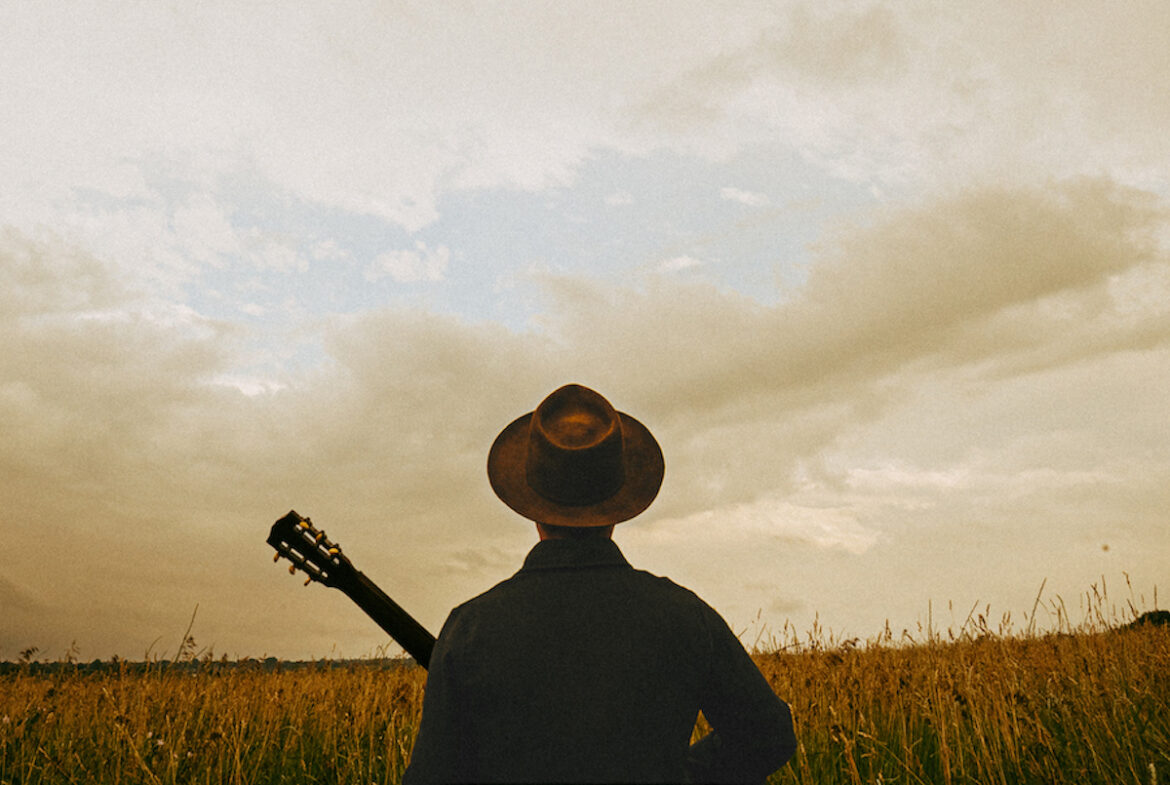
 © Glen Ross
© Glen Ross